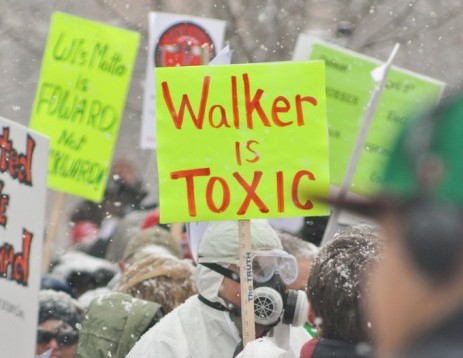 Okay, not ALL public-spirited millennials are becoming chuggers, i.e. those well-meaning people with clipboards who waylay you.Photo: Howard LakeWell, The New York Times has finally found a trend to report on that doesn’t consist of three people in Park Slope. The trouble is, they’re not sure exactly what that trend is. Either millennials — otherwise known as “kids these days” — are more likely to get do-goodnik jobs because they’re big-hearted givers, or they’re more likely to get do-goodnik jobs because the recession put soulless corporate money out of reach.
Okay, not ALL public-spirited millennials are becoming chuggers, i.e. those well-meaning people with clipboards who waylay you.Photo: Howard LakeWell, The New York Times has finally found a trend to report on that doesn’t consist of three people in Park Slope. The trouble is, they’re not sure exactly what that trend is. Either millennials — otherwise known as “kids these days” — are more likely to get do-goodnik jobs because they’re big-hearted givers, or they’re more likely to get do-goodnik jobs because the recession put soulless corporate money out of reach.
Interest in nonprofit and service jobs is definitely going up:
In 2009 alone, 16 percent more young college graduates worked for the federal government than in the previous year and 11 percent more for nonprofit groups …
Renewed interest in public service is visible across the country. Applications for AmeriCorps positions have nearly tripled to 258,829 in 2010 from 91,399 in 2008. The number of applicants for Teach for America climbed 32 percent last year, to a record 46,359. Organizations like Harvard’s Center for Public Interest Careers have been overwhelmed — and overjoyed — with the swelling demand from talented 20-somethings.
But is it because they were raised on breast milk, Barney, and community service credit?:
Some experts say millennials — those who grew up in the 1990s or the 21st century — are unusually big-hearted, maybe because of the community service requirements they had in school.
“The millennial generation is a generation that is just more interested in making a difference than making a dollar,” said Max Stier, the president and chief executive of the Partnership for Public Service, a nonprofit group that advises government recruiting efforts.
Or is it just because selling out isn’t an option right now?:
Since the recession began three years ago, the private sector has shed 7 percent of its jobs. The federal government, meanwhile, has expanded its payrolls 3 percent.
While many of those who graduated in 2008 got whisked off to high-paying jobs in consulting and finance, the graduates of the barren years of 2009 and 2010 were not courted in the same way. They were mostly left to scrounge about for their own job leads.
Either way, maybe it’ll stick, at least a little: Nonprofit groups worry that these bright-eyed young hordes will abandon them once the economy recovers and fortune comes knocking. But having started on the do-gooder track, for whatever reason, the twentysomethings interviewed in the story were at least paying lip service to the idea of continuing — even if they eventually have to start thinking about the fact that they’re not going to get any Social Security.
“I’m not opposed to working in the private sector, depending on what was available as I get older and need a more lucrative career to support family and so on,” [thwarted merchandising professional Alison] Sadock says. “But I’d still like to be something more meaningful. Maybe something in corporate philanthropy would work.”



